One of the skills I continually support clients to develop is self-compassion. It is a skill I also needed support to develop. My adventure of self-compassion started a number of years ago, when I didn’t know self-compassion even existed and had a deep sense of unworthiness and self-loathing.
The Gift of Mindful Self-Compassion
Before we start exploring self-loathing, we need to make sure we have some mindful self-compassion. Therefore I am going to share a few definitions of self-compassion with you.
In his book The Mindful Path to Self-Compassion: Freeing Yourself from Destructive Thoughts and Emotions Christopher Germer refers to self-compassion as “… simply giving the same kindness to ourselves that we would give to others.”
Dr Kristin Neff in her book Self-Compassion: The Proven Power of Being Kind to Yourself, refers to self compassion as having three components –
- Self-kindness – be gentle and understanding with ourselves rather than harshly critical and judgmental.
- Common humanity – feeling connected with others in the experience of life rather than feeling isolated and alienated by our suffering (i.e. experiencing our imperfections).
- Mindfulness – that we hold our experience in balanced awareness, rather than ignoring our pain and exaggerating it.
Also, in the The Force of Kindness, Sharon Salzberg wrote – “this kind of compulsive concern with “I, me and mine” isn’t the same as loving ourselves… Loving ourselves points us to capacities of resilience, compassion and understanding within that are simply part of being alive.”
What is Self-Loathing?
The definitions of self-loathing include –
- “hatred of oneself” ~ Google and Oxford Dictionaries
- “the feeling of hating yourself” ~ MacMillan Dictionary
- “very strong feelings of dislike for yourself” ~ Cambridge Dictionary
- “strong dislike or disgust; intenseaversion.” ~ Dictionary.com
Where Did My Self-Loathing Originate?
Like most people, my self-loathing originated in childhood. There were many situations and experiences involved, which resulted in many complexities. Subsequently, there were many layers I needed to peel back in order to get to the bottom of my self-loathing. However, as I share a snippet of my experience under “Yes, I remember”, please know I am sharing from a from a place of compassion, accountability and responsibility for my life (there is no blame). I needed to learn the skills I have today, in order to live whole-heartedly.
Yes, I Remember…
Yes, I remember being told many times, that I couldn’t eat certain foods, otherwise I would end up being fat.
Yes, I remember when I shared how I felt and was told it didn’t matter.
Yes, I remember being called “thunder thighs”.
Yes, I remember being told I laughed too loud and that is not “lady like”.
Yes, I remember the physical and psychological abuse.
Yes, I remember being told that I didn’t do very well at tennis.
Yes, I remember being told I was slow and needed to be quicker at making decisions.
Yes, I remember being told “I was too fat to be an athlete as my skinfolds were too high”.
Yes, I remember the mistakes I made in a tennis match and being reminded of them when I got off the court by coaches.
Yes, I remember being told that I was not smart enough as I was “just a tennis player”.
Yes, I remember many, many situations and experiences that hurt me, however I didn’t have the courage or skills to deal with them effectively, however fortunately I did know how to numb the pain.
After many, many years of inner work, I really do believe that everyone was doing the best they knew how to do, however those words and actions left there mark. Fortunately, through the work I have done, I have changed. I have released some of the self-criticism, distorted thinking patterns and am continually remembering to return to self-compassion from self-loathing. As Maya Angelou famously said,
“I did then what I knew how to do. Now that I know better, I do better.”
So, Now I Know…
Now I know, I can give myself unconditional permission to eat.
Now I know, my feelings matter and when I listen to them I develop insight.
Now I know, my body is my home and I am grateful for what it does.
Now I know, laughter is great medicine and is a sign of the joy I have within me.
Now I know, the physical and psychological abuse I received was because of the pain the people were in (i.e. hurt people, hurt people) and I know what is my stuff.
Now I know, I did my best at tennis and reaching the 3rd Round of the Australian Open was a highlight. However, tennis is not all about the results, it is about the enjoyment, fitness and relationships you develop along the adventure.
Now I know, as a highly sensitive person it takes me time to make decisions as I process deeply.
Now i know, I can accept my body as it is and when I listen to it is gives me signals and information.
Now I know, I am a worthwhile person and the mistakes I made in a tennis match, did not translate in to me being a mistake or an unworthy person.
Now I know, there are a variety of intelligences and tennis was one part of my life, not who I am. I am a human being first and foremost 🙂
Now I know, I can get through situations as I know, like and trust myself and am grateful I was fortunate enough to learn to numb as it helped me cope until I was ready and had the time and resourcefulness to do the inner work.
5 Reasons to Start to Focus on Self-Compassion
After reading those definitions of self-compassion, it seems easy enough, right? Wrong – well for many people anyway, particularly women. Why are do we find it so hard to show compassion towards ourselves? Maybe the following myths about self-compassion from Dr Neff’s book Self-Compassion: The Proven Power of Being Kind to Yourself can help us change our perceptions around self-compassion –
Myth: “If I’m too self-compassionate, won’t I just be lazy and selfish?”
Reality: Despite being socially acceptable, self-criticism is not a helpful strategy to helping us fulfil our potential. It can actually do the cause up to feel insecure and inadequate.
Myth: “I am not worthy of compassion.”
Reality: Everyone is worthy of compassion – as we have all made mistakes, no one is perfect.
Myth: Self-compassion is just a form of self-pity or self-indulgence.
Reality: Self-compassion means I think my problems are also important and worthy of being attended to as well as your problems. Self-compassion is about being with our challenges and seeing them as they are not numbing them or pushing them away, which is more self-indulgent.
Myth: We have to earn the right for compassion.
Reality: According to the Dalai Lama, “Human beings by nature want happiness and do not want suffering. With that everyone tries to achieve happiness and tries to get rid of suffering, and everyone has a basic right to do this.. Basically, from the viewpoint of real human value, we are all the same.”
Myth: Self-criticism is an effective motivation strategy
Reality: self-criticism is not a helpful strategy to feel better despite it being socially acceptable. In fact, it can cause you to feel insecure and inadequate.
Remembering to Return to Self-Compassion from Self-Loathing
Today, self-compassion continues to be a practise for me and the clients I work with. For me, I need to keep remembering to return to self-compassion when I am slipping back in to self-loathing. Following is a quote from Brené Brown that I have found useful to also remember as I continue to remember to love the skin I am in –
“We cultivate love when we allow our most vulnerable and powerful selves to be deeply seen and known, and when we honor the spiritual connection that grows from that offering with trust, respect, kindness and affection.
Love is not something we give or get; it is something that we nurture and grow, a connection that can only be cultivated between two people when it exists within each one of them – we can only love others as much as we love ourselves.
Shame, blame, disrespect, betrayal, and the withholding of affection damage the roots from which love grows. Love can only survive these injuries if they are acknowledged, healed and rare.” ~ Brené Brown The Gifts of Imperfection: Let Go of Who You Think You’re Supposed to Be and Embrace Who You Are
.
Over to You…
If you are going on this adventure of self-compassion, you may like to take this little bit of wisdom with you as well –
“Owning our story can be hard but not nearly as difficult as spending our lives running from it. Embracing our vulnerabilities is risky but not nearly as dangerous as giving up on love and belonging and joy – the experiences that make us the most vulnerable. Only when we are brave enough to explore the darkness will we discover the infinite power of our light.” ~ Daring Greatly: How the Courage to Be Vulnerable Transforms the Way We Live, Love, Parent, and Lead by Dr Brené Brown.
If you are ready to reclaim your courage and take the next step towards your freedom and opening your heart, why not join our Toolkit?
References:
Brown, B. (20o7). I Thought It Was Just Me (but it isn’t): Making the Journey from “What Will People Think?” to “I Am Enough”. New York, USA: Penguin.
Brown, B. (2010). The Gifts of Imperfection: Let Go of Who You Think You’re Supposed to Be and Embrace Who You Are. USA: Hazelden.
Germer, C. (2009). The Mindful Path to Self-Compassion: Freeing Yourself from Destructive Thoughts and Emotions. New York: Guilford Press.
Neff, K. (2011). Self-Compassion: The Proven Power of Being Kind to Yourself. New York, USA: HarperCollins Publishers.
Salzberg, S. (2010). The Force of Kindness: Change Your Life With Love and Compassion. Canada: Sounds True Inc.
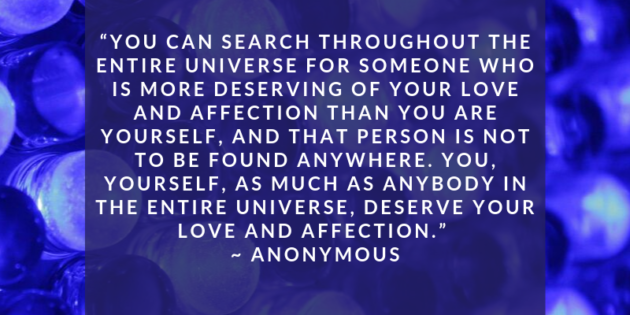




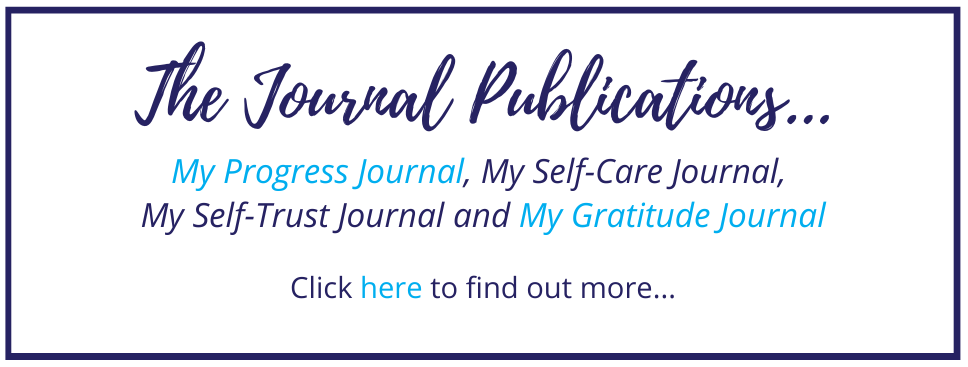

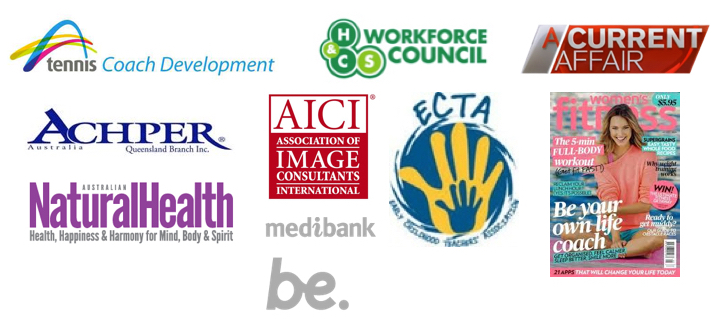
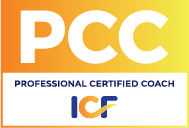
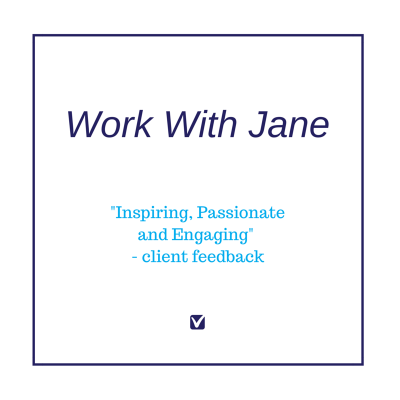







Leave A Response